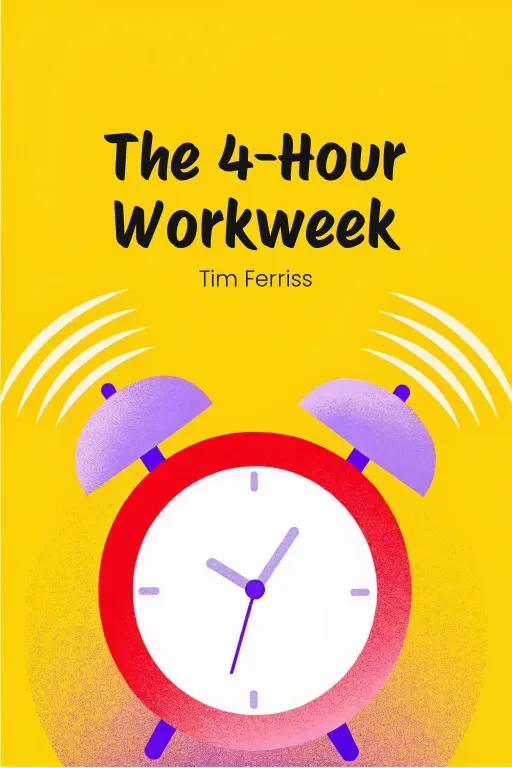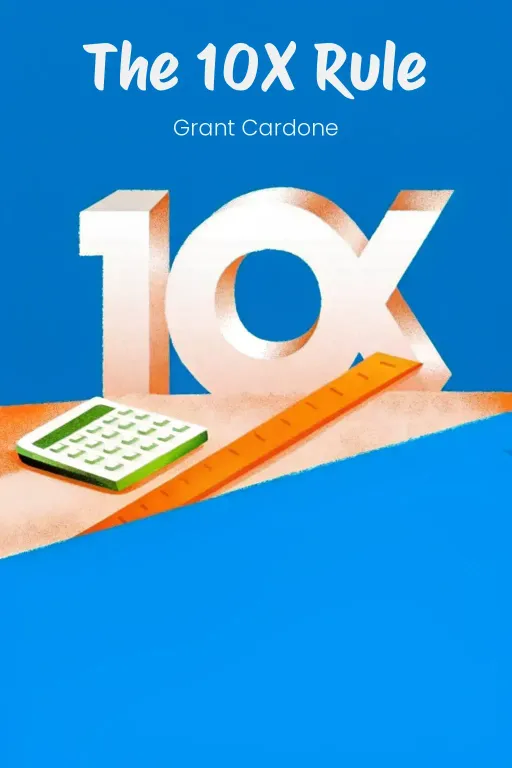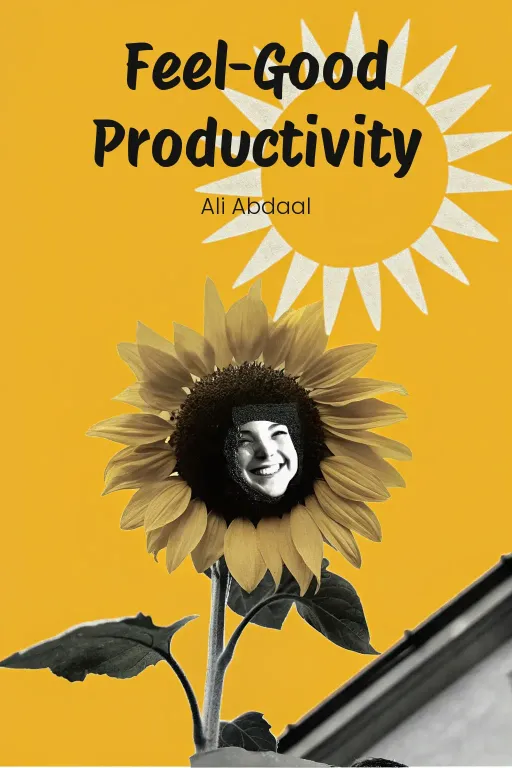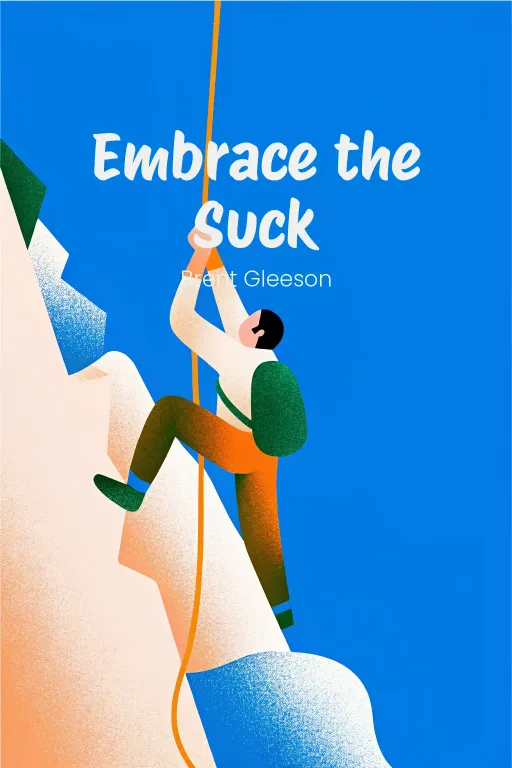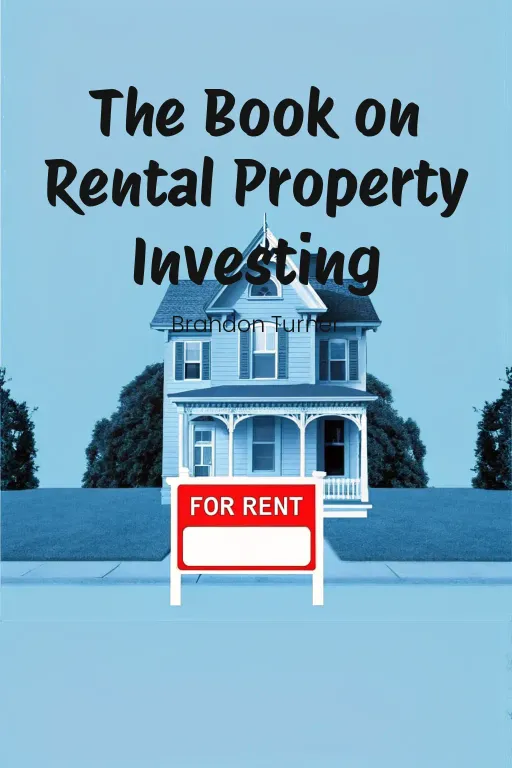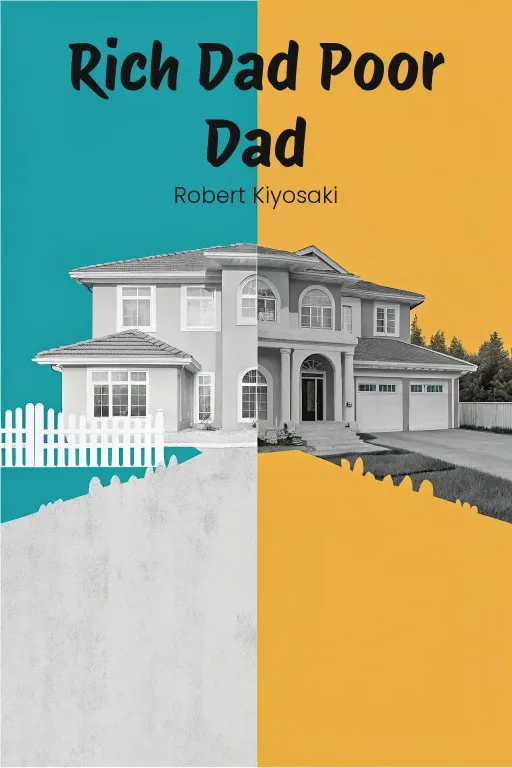
Escape The Grind: Design Your Dream Life
Podcast by Beta You with Alex and Michelle
Escape 9–5, Live Anywhere, and Join the New Rich
Introduction
Part 1
Alex: Today we're jumping into a book that’s sparked a lot of conversations about escaping the daily grind: Tim Ferriss’ “The 4-Hour Workweek”. Michelle: “The 4-Hour Workweek”, huh? So, Alex, are we talking about the guru who promises that we can all be sipping margaritas on a beach somewhere while money just magically appears in our bank accounts? Alex: Well, that's part of the appeal, Michelle, definitely. But it’s really about so much more than just chilling on a beach. Ferriss is really challenging the whole traditional idea of the 9-to-5 work life, you know, working until you retire. He introduces this concept called "lifestyle design." It’s about building a life where you work smarter, not necessarily harder, and actually enjoy your life in the present. Michelle: "Work smarter, not harder"... I think I heard a similar line from my boss right before he increased my working hours from 60 to 70 a week. Alex: <Laughs> I hear you. But Ferriss actually gives you real, actionable strategies to take back control of your time. He talks about automating your income streams, outsourcing those tedious tasks we all hate, and even taking "mini-retirements" to experience life “now”, instead of waiting until you're 65, or 70 even, to finally start living. Michelle: Okay, Alex, bold claims! So, what's our game plan for today? Alex: We're going to break it down into three key areas. First, we're going to redefine success. What does it “really” mean to live a fulfilling life? Then, we're going to dive deep into eliminating distractions and boosting your productivity like crazy. And finally, we're going to explore ways to build systems that work “for” you. Whether that's automating your income or delegating those tasks you dread. Michelle: Sounds like a roadmap for turning our lives into one giant life-hack. Alright, Alex, I'm intrigued. Let’s dig in and see if it actually holds water!
Redefining Work and Retirement
Part 2
Alex: Okay, so we've talked about redefining success, right? Now, let's really dig into Tim Ferriss's ideas on rethinking work and retirement. I think this is where he really lays the groundwork for everything else, by challenging that whole "deferred-life" plan. You know, that traditional grind: work hard until you're 65, then supposedly enjoy life, right? Ferriss basically argues it’s an outdated model, and honestly, pretty flawed. Michelle: Outdated, yeah, I can see that. But flawed? I don't know, isn't there something to be said for the practical side of it? A steady paycheck, some savings, health insurance – that's how most people keep their heads above water. So what alternative does Ferriss actually propose? Alex: He argues that spending your best years just coasting, slogging through work that doesn't inspire you, just for some elusive future security, isn't really living – it’s more like slowly chipping away at your potential. Instead, he's all about mixing work and leisure, with what he calls "mini-retirements." Extended breaks for travel, learning, or just plain living, spread throughout your life. Michelle: Mini-retirements, huh? Sounds… idyllic! But here's the million-dollar question – or maybe the "how-much-does-this-cost" question: who exactly funds these little sabbaticals? Because last I checked, my boss isn't exactly handing out three-month paid vacations to explore Tuscany. Alex: Right, good point! And that's where lifestyle design really comes into play. Ferriss emphasizes prioritizing time and mobility over just accumulating money. Instead of saving up a huge pile of cash for some distant, hypothetical happiness, you optimize your income so you can enjoy the freedom now. For example, he talks about how living in an affordable country, like Argentina, can actually lower your cost of living compared to staying put back home. Michelle: Argentina, huh? Tango, Malbec, and... somehow cheaper than my cramped apartment? He's got to have some real-world examples to back that up. Alex: Actually, he does! Ferriss shares a story of someone who moved to Buenos Aires. Initially, she was worried about money. But she realized pretty quickly that living there was far more affordable than her old life back in the States. By working remotely, she totally redefined what financial feasibility even looked like, proving that a lot of our assumptions about what we can afford just… don't hold up when you really look at them. Michelle: So, ditching New York rent for empanadas and those charming European-style cafes? I have to admit, there's a certain appeal to that. But, let's be realistic here, Alex. Not everyone can just pack up and move abroad. What does he suggest for those of us who are still, you know, “chained” to a desk? Alex: Totally. He talks about questioning this very "cubicle norm" and finding ways to reclaim some control over your time. A lot of his advice focuses on moving away from that standard 40-hour week. Seriously, ask yourself if how you're spending your time is actually productive or just routine. Ferriss argues that a lot of workplaces focus on being busy, not on being effective. Michelle: Right, so less about punching the clock and more about, well, results. Sounds great in theory, but most offices aren't exactly structured to reward that kind of thinking. Alex: True, but here's the thing: Ferriss is all about disrupting those norms. If you're stuck in a rigid system, start small. Negotiate working remotely just one day a week, or try combining similar tasks to free up time for the stuff that actually matters. The idea is to challenge the system, one small step at a time. Michelle: Baby steps towards freedom, I like it. But it's this whole concept of time and mobility that I keep coming back to. He's acting like they're just endless resources, if you can crack this "lifestyle design" code but for a lot of people, time in particular is a luxury they simply don't have. Alex: Ferriss totally acknowledges that not everyone starts from the same place. But he emphasizes being adaptable. Take, for example, Hans Keeling, the lawyer who became an adventure tourism entrepreneur. He felt stuck by societal expectations, so he restructured his life around his passion - surfing - and turned it into a viable business. It’s about rethinking your priorities and finding your own way forward. Michelle: So, Hans traded arguing in courtrooms for riding waves on a beach… and somehow managed to make a living doing it? Okay, I'll give you that, it's intriguing. But let’s be honest, that kind of radical reinvention isn’t for everyone. Alex: No, of course not everyone's path is going to involve surfing, that's not the point. The core message is, ask yourself some tough questions about your life. If your current path isn't making you happy or fulfilled, why stick with it? What if you could redesign it to better align with your goals and passions? Michelle: Look, society definitely pushes a certain narrative: success is hard work, career advancement, and financial stability. Stepping away from that path comes with risks. What if this whole restructure fails? What if passion doesn’t actually pay the bills? Alex: Ferriss doesn't brush those fears aside. Actually, he has this really interesting exercise called "fear-setting," where you literally confront those potential failures head-on. You map out the worst-case scenarios, step by step, and then figure out how you'd recover from them. And honestly, nine times out of ten, it's not nearly as catastrophic as you imagine. Michelle: Alright, so I quit my job to launch some experimental side project, and it crashes and burns. What’s next? I move back in with my mom, and ration instant noodles until I find another soul-crushing job? Alex: It's possible, yes. But Ferriss argues that even failures are learning opportunities. Most "worst-case" outcomes are just temporary setbacks, not permanent disasters. And frankly, the risk of doing nothing – staying trapped in a life that doesn’t light you up – might be even greater. Michelle: That’s… a fair point. Though I’ll probably need a bit more convincing before I trade in my 401k for a mini-retirement in Bali.
Productivity Paradigms and Elimination of Time Wasters
Part 3
Alex: So, by challenging these societal norms, we naturally transition into the practical strategies that make this lifestyle possible. Ferriss doesn’t just leave us hanging with philosophical questions; he provides actionable methods to change how we manage our time and our productivity. And that leads us to today’s topic: Productivity Paradigms and Eliminating Time Wasters. Michelle: Okay, things are getting interesting. But I'm hoping this is more than just generic “make a to-do list and wake up early” advice, right? Because frankly, I'm not about that life. Alex: Absolutely not. Ferriss’s approach completely rethinks conventional productivity. It’s all about working smarter, not necessarily harder or longer. He explores key concepts like the 80/20 Principle, Parkinson’s Law, and the Low-Information Diet. Each of these is designed to help you streamline your efforts, focus on what really matters, and create more time for what you value. Michelle: Alright, let’s tackle this 80/20 Principle first. It sounds like business jargon, but I'm willing to hear it out. Alex: Well, the 80/20 Principle, or Pareto’s Law, suggests that 80% of your results often come from just 20% of your efforts. Basically, a small portion of what you do drives the majority of your success. Ferriss argues that once you've identified that high-impact 20%, you can ditch the rest and significantly boost your efficiency. He actually applied this to his own business. Michelle: A bold strategy. How did he figure out which 20% mattered? Did he consult a crystal ball or something? Alex: Not exactly. At one point, Ferriss was stuck in 15-hour workdays running his business. He analyzed his clients and realized that 20% of them generated 80% of his revenue, while the rest caused most of the stress and headaches. So, he did something pretty drastic—he fired the less productive 80% of his clients and focused solely on the revenue-generating ones. Michelle: Wait a second, he fired clients? That sounds… risky. What if it backfired? Alex: It was a gamble, for sure, but it paid off. By focusing on his top clients, he reduced his workload, lowered his stress levels, and increased his profitability. It might sound counterintuitive, but it's about prioritizing quality over quantity. A lot of us waste time on low-value tasks or people that don't really move us closer to our goals. Michelle: Okay, that makes sense. So, in theory, I should stop agonizing over crafting the perfect email and focus on, say, finishing a project—or at least making sure my coffee is strong enough to get me through it? Alex: Precisely. The idea is to ask yourself: what am I doing that creates the most value, and what's just noise? Once you know, you can focus on the essential few and let go of the less important many. Michelle: Intriguing. But there's still the issue of time. Even if I focus on that golden 20%, I’m still limited by the hours in a day. Alex: Agreed, and that’s where Parkinson’s Law comes in. This law states that “work expands to fill the time available for its completion.” Ferriss argues that by giving yourself shorter, stricter deadlines, you can force yourself to be more efficient and cut out unnecessary stuff. He even tested this out in college. Michelle: Oh, I want to hear this. Let me guess—he procrastinated until the last minute and somehow aced the paper? Alex: Almost! He once turned a semester-long assignment into a three-day sprint. By limiting his available time, he eliminated distractions and found intense focus. And the result? He not only finished on time, but his work was high-quality. Ferriss believes that time constraints push us to prioritize results over effort, which makes us more effective overall. Michelle: So next time I’m struggling with a project, I should just give myself a tighter deadline? Sounds like a recipe for a panic attack, not progress. Alex: It's about finding the right balance. The goal isn't chaos, but intense focus. By compressing deadlines, you can cut through procrastination and get straight to what really needs to be done. Try breaking down big tasks into smaller, time-boxed chunks, instead of letting them drag on for weeks. Michelle: Alright, so now I need to focus on the important 20% and cut down on the time I spend procrastinating on everything else. But let’s talk about one of the biggest sources of distraction these days—information overload. What’s Ferriss’s take on that? Alex: Ferriss is strongly against constantly consuming information just for the sake of it. He calls it the “Low-Information Diet.” Basically, only take in information that's directly relevant to your goals right now. Everything else? Ignore it. Michelle: You’re telling me this guy skips the morning news cycle? What about staying informed, or catching up on funny videos? Alex: That’s his point—most of the information we consume is irrelevant. Ferriss avoids daily news and even social media unless it’s necessary. Instead, he relies on curated updates or conversations to stay informed. It's about being intentional about what you allow into your mental space. Michelle: So if the information won't change my decisions or actions right now, I should just ignore it? Sounds kind of liberating, but also unsettling. Alex: It is liberating, once you get used to it. Think about how much time we waste scrolling through headlines or dwelling on random “what if” scenarios. If it’s not actionable, it’s just noise. Ferriss's rule of thumb: ask yourself, “Will this change what I need to do today?” If the answer is no, move on. Michelle: I’m starting to see the appeal. So, so far, we’ve decluttered my email, streamlined my focus, and put my news consumption on a diet. But what about those daily distractions I can't always control? Like meetings, or constant notifications? Alex: That’s where Ferriss explores practical tactics like task batching—grouping similar activities together to reduce stop-and-start inefficiencies. For example, instead of checking email all the time, he checks it twice a day—at noon and 4 PM—and uses an autoresponder to manage expectations. It’s about controlling your availability, instead of letting interruptions run your day. Michelle: What if people freak out because I'm not instantly available? People expect immediate responses, especially in professional settings. Alex: True, but think of it this way: by setting boundaries, you're teaching others to respect your time. He even implemented weekly report updates within his teams, cutting down on constant interruptions while still keeping communication clear. The result? More focus on real work, and less chaos caused by other people's demands. Michelle: Okay, that’s smart. So, the battle against time-wasters is all about boundaries, focus, and selective attention. Is there anything else I'm missing? Alex: Just one more thing—learn to say “no.” Ferriss found that declining even small distractions or low-value opportunities was critical to protecting his time. Politely saying no means you have more space to focus on what truly matters. Michelle: Saying no, huh? That's easier said than done, when every request feels urgent. Still, it's clear that Ferriss’s approach isn’t just a productivity tip; it’s a whole new way of thinking. It’s a shift in mindset.
Automation and Liberation
Part 4
Alex: So, with these productivity tools in hand, the next step is to automate and delegate tasks to really sustain that efficient lifestyle. That’s the heart of Ferriss’s next big idea: automation and liberation. It's about actually applying all these strategies we've talked about to create self-sustaining systems, or at least ones that need way less of our direct involvement. Michelle: Automation and liberation, huh? Sounds like the robots are taking over. But seriously, are we talking about handing everything over to machines and calling it a day? I mean, isn’t there a bit more nuance to it than that? Alex: Not quite, although I think Ferriss would appreciate the reference. It's building systems and using tools – automated income streams and virtual assistants, for example – to literally free up your time. Removing yourself as the bottleneck is the core of it. You want things to keep running smoothly. Michelle: Okay, so let's talk about these "automated income streams" first. I think he calls them "muses," right? I am curious what these exactly are. Are we talking about finding some cash cow that just…appears? Alex: It’s not magic, I promise! As Ferriss says, a “muse” is a low-maintenance business that generates cash flow. It should be easy to run and shouldn't need your constant attention. Rather than this huge startup or something super risky, you want to create something simple that fits a really specific niche. Michelle: Specific niche, huh? Give me an example. And please, something more interesting than artisanal pickle subscription boxes. Alex: <Laughs> Ferriss would think that would work if it fit a niche! But his example of a yoga instructor who created a DVD specifically for rock climbers is good. That combined yoga and climbing – two seemingly very different things. But it fixed a very real need for flexibility within the climbing community. That’s what made it work – how specific it was. Michelle: So, not just "yoga," but “yoga for people hanging off cliffs.” That's… surprisingly clever. But what if the idea is a dud? All that time, money, and then what? You just walk away? Alex: That’s where he talks about low-cost testing. He suggests checking your ideas before you fully commit. So, instead of making, say, a whole product line, you make a mock-up and test the waters with Pay-Per-Click ads or even just landing pages. It's gathering data before you go all-in. Michelle: Ah, dipping a toe in the water before diving into the deep end. Okay, but let's say your muse actually works. What does that look like, day-to-day? Do you just sit back while the cash register rings on autopilot? Alex: In some cases, yes. The trick is mixing outsourcing and automation. You use virtual assistants—VAs—to handle routine tasks: answering customer questions, scheduling shipments, managing social media. Then, with tools like email autoresponders, you can step back from most day-to-day stuff. Michelle: Virtual assistants, huh? Like an army of clones, but without anyone asking tough ethical questions. Are they really reliable? I can see a lot of room for error, especially across time zones, or even, let's be honest, across cultural differences. Alex: That’s a valid point. Ferriss himself had issues with outsourcing at first. He realized most of those issues happened when instructions weren’t clear. Start small, delegate simpler tasks first, and write down step-by-step guides. Then you can expand to the more complicated stuff as the VA gets comfortable. Michelle: Okay, walk before you run – and write it all down. But let's be real, outsourcing isn't perfect. What happens if your VA messes up something important, like customer details? Alex: Mistakes are going to happen. Ferriss says you need to have some redundancy and learn from those mistakes. He tells a story where his VA messed up some travel plans. Well, instead of blowing up, he looked at what went wrong, fixed the process, and made communication better. It's a process of trial and error, getting you to a smooth system over time. Michelle: Got it. Outsourcing isn't perfect, it evolves. Still, this all seems a bit…idealistic. What about people stuck in regular 9-to-5 jobs? Can they just hand off a ton of work to a VA? Alex: True, and Ferriss knows that. He talks a lot about switching to remote work. This can create more flexibility even for people in standard jobs. You have to make a good case to your employer, though – showing how working remotely can help your productivity and save the company money. Michelle: So, make your boss think it was their idea all along. Any stories where that went well? Alex: Of course! Ferriss talks about a marketing coordinator - Autumn Brookmire - who wanted to work remotely. She gave her boss real data – cost savings, her own productivity numbers. That convinced her boss, and she later moved to Argentina. Michelle: And I'm guessing things got better for her in more ways than just money? Alex: Exactly. That's the lifestyle Ferriss champions – living abroad, trying a new culture, cheaper costs of living, and still working. It's not only about money, but also about what life can look like. Michelle: Speaking of life outside the office, Ferriss loves his "mini-retirements." The idea of disappearing for months sounds great, but what about the logistics? For most people, that sounds… impossible. Alex: Absolutely unconventional, but Ferriss argues it's more doable than we think – especially when you combine cheap travel with working remotely. He even talks through the fears that keep us from stepping away, like falling behind at work. A lot of the barriers are mental. Michelle: Let me guess – he's got cases of people making it work? Alex: Definitely! A remote worker found a way better quality of life in Argentina– nicer places, better food– for much less money than his expenses in the U.S. Once you adjust what you expect and rethink costs, a mini-retirement works for a lot of people. Michelle: Okay, a little inspiring, I admit—even if the idea of randomly leaving for months scares me a little. But let’s pull it all together. Automation, delegation, remote work, mini-retirements—what’s the thing that connects all of these? Alex: It’s freedom – taking control over your time and choices by creating systems that fit the life you want to live. Ferriss isn’t just changing work structures. He’s actually reshaping what freedom and purpose even mean to us.
Conclusion
Part 5
Alex: Okay, so to bring it all together, we’ve really dug into how “The 4-Hour Workweek” shakes up the way we think about work and life, right? Ferriss isn’t just talking about making a ton of money; he's saying time and freedom should be the real goals. We talked about using things like the 80/20 Principle to ditch the time-wasting stuff, using Parkinson’s Law to get focused, and going on a Low-Information Diet to cut out the noise. And then, of course, creating that freedom, through automation, outsourcing, remote work, and even those awesome mini-retirements. Michelle: Right, and it sounds like Ferriss isn’t just spinning some fantasy. He's giving you the actual instruction manual, almost daring you to try it out. Whether it’s ditching those pointless tasks, learning to say "no," or diving headfirst into designing your ideal life, his message is pretty straightforward: challenge what you think is possible and actually start taking baby steps towards making it happen. Alex: Precisely! The key thing to remember? Don’t put your dreams off until “someday”. Start looking at your day-to-day habits and routines now. What can you get rid of, hand off to someone else, or tweak to better fit what really matters to you? Michelle: And, hey, maybe—just maybe—trade in that mindless scrolling for something that actually means something to you. Your version of freedom might be closer than you imagine.

